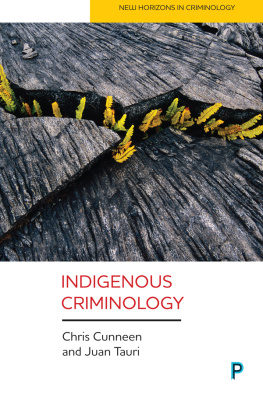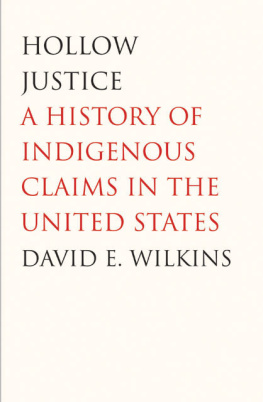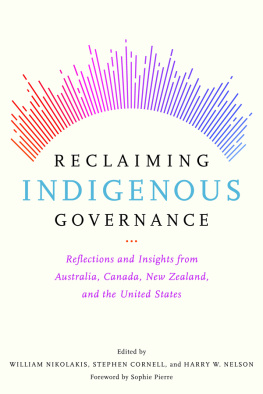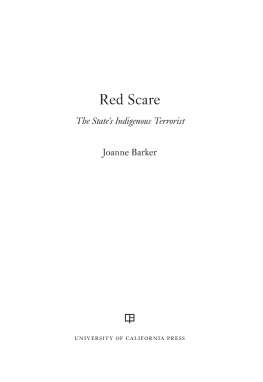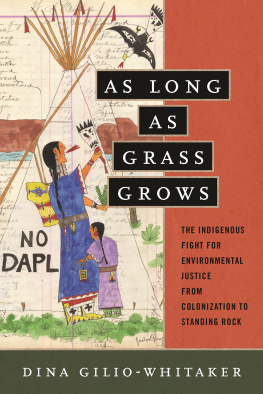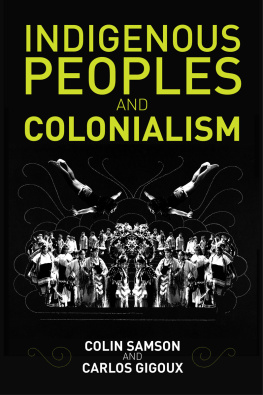
Environmental Justice as Decolonization
This book corrects the tendency in scholarly works to leave Indigenous peoples on the margins of discussions of environmental inequality by situating them as central activists in struggles to achieve environmental justice. Drawing from archival and interview data, it examines and compares the historical and contemporary processes through which Indigenous fishing rights have been negotiated in the United States, Australia and New Zealand, where three unique patterns have emerged and persist. It thus reveals the agential dynamics and the structural constraints that have resulted in varying degrees of success for Indigenous communities who are struggling to define the terms of their rights to access traditionally harvested fisheries while also gaining economic stability through commercial fishing enterprises. Presenting rich narratives of conquest and resistance, domination and resilience, and marginalization and revitalization, the author uncovers the fundamentally cultural, political and ecological dynamics of colonization and explores the key mechanisms through which Indigenous assertions of rights to natural resources can systematically transform enduring political and cultural vestiges of colonization. A study of environmental justice as a fundamental ingredient in broader processes of decolonization, Environmental Justice as Decolonization will appeal to scholars of sociology, anthropology, environmental studies, law and Indigenous studies.
Julia Miller Cantzler is Associate Professor in the Department of Sociology at the University of San Diego, USA. She is also an attorney with expertise in the fields of federal Indian law and environmental law.
Environmental Justice as Decolonization
Political Contention, Innovation and Resistance Over Indigenous Fishing Rights in Australia, New Zealand, and the United States
Julia Miller Cantzler
First published 2021
by Routledge
2 Park Square, Milton Park, Abingdon, Oxon OX14 4RN
and by Routledge
52 Vanderbilt Avenue, New York, NY 10017
Routledge is an imprint of the Taylor & Francis Group, an informa business
2021 Julia Miller Cantzler
The right of Julia Miller Cantzler to be identified as author of this work has been asserted by her in accordance with sections 77 and 78 of the Copyright, Designs and Patents Act 1988.
All rights reserved. No part of this book may be reprinted or reproduced or utilised in any form or by any electronic, mechanical, or other means, now known or hereafter invented, including photocopying and recording, or in any information storage or retrieval system, without permission in writing from the publishers.
Trademark notice: Product or corporate names may be trademarks or registered trademarks, and are used only for identification and explanation without intent to infringe.
British Library Cataloguing-in-Publication Data
A catalogue record for this book is available from the British Library
Library of Congress Cataloging-in-Publication Data
Names: Miller Cantzler, Julia, 1974 author.
Title: Environmental justice as decolonization : political contention, innovation and resistance over indigenous fishing rights in Australia, New Zealand, and the United States / Julia Miller Cantzler.
Description: Abingdon, Oxon ; New York, NY : Routledge, 2020. | Includes bibliographical references and index.
Identifiers: LCCN 2020015949 (print) | LCCN 2020015950 (ebook) | ISBN 9780367200855 (hardback) | ISBN 9780429259524 (ebook)
Subjects: LCSH: Environmental justiceAustralia. | Environmental justiceNew Zealand. | Environmental justiceUnited States. | Aboriginal AustraliansGovernment relations. | Maori (New Zealand people)Government relations. | Indians of North AmericaGovernment relations. | Aboriginal AustraliansFishingLaw and legislation. | Maori (New Zealand people)FishingLaw and legislation. | Indians of North AmericaFishingLaw and legislation.
Classification: LCC GE240.A8 M55 2020 (print) | LCC GE240.A8 (ebook) | DDC 333.95/6dc23
LC record available at https://lccn.loc.gov/2020015949
LC ebook record available at https://lccn.loc.gov/2020015950
ISBN: 978-0-367-20085-5 (hbk)
ISBN: 978-0-429-25952-4 (ebk)
Typeset in Times New Roman
by Apex CoVantage, LLC
For my daughters, Isla and Coraline
In 2016, people around the world were captivated when members of the Standing Rock Sioux Tribe and thousands of their allies, including members from 300 Native American tribes and international Indigenous communities, set up camp near their reservation in North Dakota to protest the construction of the Dakota Access Pipeline. The pipeline would carry oil over 1,100 miles from oil fields in North Dakota through the tribes ancestral territory and on to storage facilities in Illinois, threatening the tribes water supply as well as hundreds of sacred sites and burial grounds. The protestors, who dubbed themselves the Water Protectors of Standing Rock, drew widespread media attention during their ten-month occupation of the Sacred Stone Camp as they endured a barrage of attacks from law enforcement and the Dakota Access Pipelines private security officers who used dogs, sound cannons, pepper spray and water cannons in freezing conditions. Over 700 arrests were made by the Morton County Sheriffs Office, including those of high-profile allies, such as actress Shailene Woodley and journalist Amy Goodman. Woodley and dozens of others alleged harsh and improper treatment while in custody, prompting Amnesty International to send in human rights observers to monitor law enforcement after condemning the sheriffs department for its excessive use of force and its employment of strip searches. Despite numerous short-term victories for the Water Protectors, the pipeline was eventually pushed through by the newly elected Trump administration, opening in May 2017.
The protests at Standing Rock, although ultimately unsuccessful in halting construction of the pipeline, drew unprecedented global attention to an episode of political contention between Indigenous peoples, the state and private industry over valuable natural resources. The occupation made clear that native peoples had not retreated to the margins of society in the face of centuries of colonial pressure but remained forces with which to be reckoned as advocates for Indigenous self-determination and environmental protection. This highly publicized battle shattered lingering stereotypes of Indigenous peoples as disappearing cultures and, instead, situated them as central agents of change leading the charge against neoliberal attacks on vulnerable natural resources. The messages coming from the protestors were clear: Indigenous peoples are willing to fight to protect their sacred sites and resources; they are the protectors of threatened lands, waters and species, and demand justice in the form of clean water, air and healthy ecosystems.
Although the degree of media attention focused on the Standing Rock protests was unprecedented, this was not the first time that Indigenous peoples organized en masse to resist incursions into their traditional resource rights. Indeed, Indigenous peoples from all over the world have been fighting to protect their lands, waters, fish and game since the time of European contact. Over the past few decades, however, episodes of political contention between Indigenous peoples and state governments over prized natural resources have drawn increased publicity, particularly in former British settler states. In the 1970s, for example, Native American activists seized on the political momentum forged by the US civil rights movement and engaged in a series of highly publicized marches and occupations of federal lands and offices to protest broken treaties and assimilationist policies that sanctioned the stealing of tribal lands, the poisoning of native waters and the usurpation of traditional subsistence resources. Around the same time, Indigenous peoples in Australia,1 New Zealand and Canada were drawing attention to centuries of injustice resulting in lost lands and limited access to essential natural resources. Specifically, Aboriginal Australians occupied the parliamentary lawn for six months in 1972 and organized a series of high-profile land rights marches in the 1980s. In 1975, Maori land rights activists marched on the New Zealand Parliament and engaged in a 17-month occupation of Bastion Point in Auckland. In the late 1980s and early 1990s, Canadian First Nations coordinated numerous standoffs and blockades to protest non-native development on First Nations lands.


